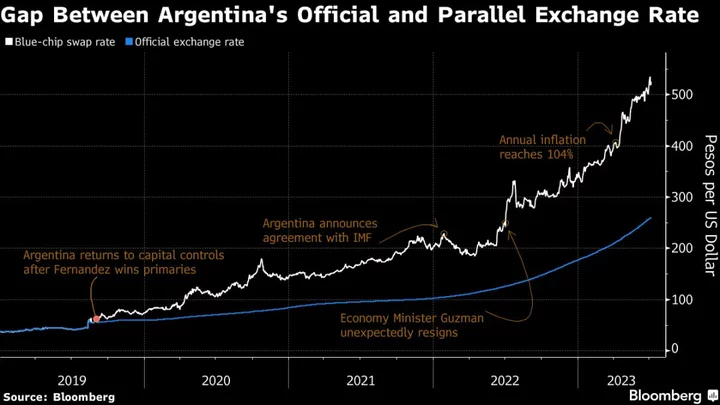Swedish core inflation slowed less than expected in June, adding pressure on the country’s central bank to tighten monetary policy further as a weak krona pushes the cost of imported goods higher.
A price measure that strips out energy costs and the effect of interest-rate changes rose 8.1% from a year earlier, according to a statement published by Statistics Sweden on Friday. That was higher than the median estimate of 7.9% in a Bloomberg survey as well as the 7.8% expected by the Riksbank.
The development will add to the concerns of central bank officials who have warned that stubborn price increases on services and a weak currency may force them to raise rates more than current plans indicate. At the same time, they have to weigh the risk from too much tightening to a vulnerable commercial real estate sector as landlords are struggling with the rising cost of heavy debt burdens.
Read more: Sweden’s Debt-Laden Landlords Veer Closer to Forced Sales
The CPIF measure that the Riksbank targets also rose more than expected. As the krona has recently been trading at all-time lows against the euro, it has become more urgent for the Riksbank to keep its benchmark rate, currently at 3.75%, at a higher level than the European Central Bank’s.
Economists expect ECB officials to hike their deposit rate to 3.75% later this month, adding pressure on the Swedish central bank to make a similar move at its next meeting, scheduled for September, to stay ahead.
The latest data from Sweden comes amid global concern that underlying price pressures may prove more lasting than previously thought. Initial estimates from the euro zone indicated that core inflation re-accelerated in June. In contrast, a US reading published Wednesday showed prices rising less than expected.
--With assistance from Joel Rinneby.









